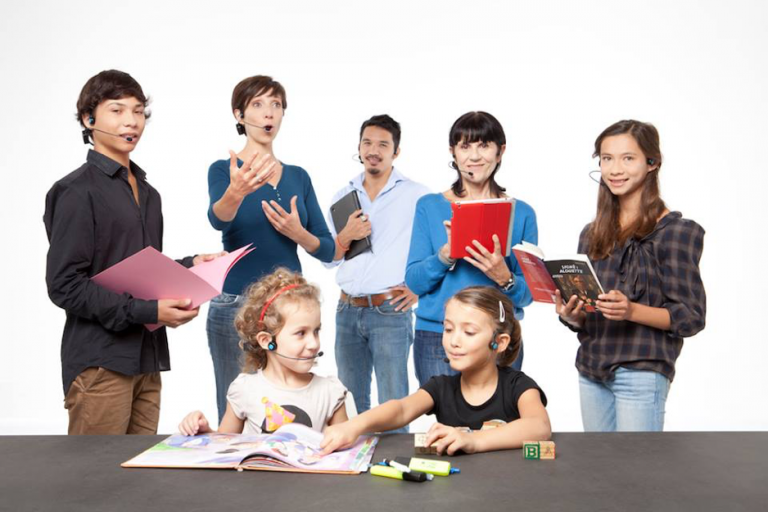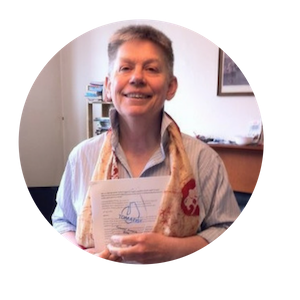Knowing More and Doing Better: A Mother, Educator, and Business Founder Discovers the Holistic Cognitive Effects of Forbrain®
This month I had the pleasure of speaking with Charlotte Davies about Forbrain Headphone. She is the founder of a company called Fit-2-Learn, fierce researcher, and educationalist in England. In the first few moments of speaking with Charlotte, it was clear that she had a deep passion for helping people, especially children, reach their cognitive potential.
Charlotte’s personal history plays a large role in the conception of Fit-2-Learn. Her desire to bring change to education in England came from her professional experiences in China, including running Vietnamese refugee camps, where she witnessed the critical effects of children’s poor physical, mental, and social development. She observed children in refugee camps who couldn’t be left to play on the ground because of rat infestations, and as the children aged—and as a result of not crawling—they experienced poor development, which affected their learning abilities. “That is really important because you see physical development directly affecting people’s lifetime chances,” she said
A large number of Vietnamese refugees had difficulty with speech and language. The ability to speak several languages was advantageous for seeking asylum. The problem was that the people spoke many languages, but very poorly. Charlotte noted that speaking many languages poorly and no language well, meant that a person is unable to master at least one of them. She explained, “You really understood this incredible importance of getting high-level language learning to give people opportunities for life. I know people who are the second generation Vietnamese refugees and they work incredibly hard; it’s hard to overcome that level of disadvantage.”

As if this wasn’t enough suffering, Charlotte witnessed the effects of trauma on the developing brain of refugee children. Observing those who had experienced trauma in their lives as refugees, Charlotte learned that without help to heal or release the trauma, development stagnated. Her understanding of mental health broadened. She understood not only that psychological therapy is imperative for trauma rehabilitation, but also, that “Later on, when people are released, they want to get their singing and things going, that’s when Forbrain comes in.” Singing to heal trauma? Is that really a thing?
Yes, it is. Also, there are many other activities that call the brain to action correctly. It must be releasing all types of cognitive, psychological, and physical blocks. Strategies such as mindfulness, the practice of being present and even activities that stimulate the auditory and vestibular system have all been found to be of great use in the treatment of trauma, developmental delays, and sensory disorders.
We’ve known for a long time that poor cognitive development can result when children aren’t given the right conditions to grow. It can also be the result of unmanaged speech and language difficulties. When the body experiences trauma, the brain experiences trauma, and this can lead to compromised cognition. Not until the last few decades did we know that cognitive abilities can change. It turns out our brains are quite dynamic; underdeveloped connections in one area of the brain can be supported by developing stronger connections in another. To learn more about the process called neuroplasticity, read a previous blog post on the topic here.
Perhaps most impactful of all these experiences, however, is Charlotte’s personal experience with her own son, who started to show signs of visual impairment when he was younger. She discusses the journey trying to help him in her TEDx Talk from 2013 entitled “Saving our children by checking the obvious.” Through her experiences with her own son, she realized that much could be done to give children a better chance for cognitive success.
Seeing the need to maximize opportunities for cognitive growth, Charlotte founded Fit-2-Learn. Perhaps the best explanation of the company and its whole-body approach is found on the home page of its website:
Fit-2-Learn is a social enterprise company that combines research and advice to all people. How they can achieve their potentials through good control of their own basic physiology. We believe that everyone can move beyond coping strategies. They use all their senses and motor skills in a coherent, efficient manner to learn and to live calmly. Once people have achieved motor-sensory integration it is important that they maintain those skills for life to maximize their health and overall well-being.
Fit-2-Learn has expertise in the areas of motor skills; sound processing skills, using Tomatis sound therapy; visual skills; and how these skills inter-relate through games, puzzles and physical activities. Further, how the trauma of all kinds can impact on skills development.
Charlotte is so passionate about sound processing and improving cognitive health that she participated in the pilot program for Forbrain, monitoring the impact it had on school students. She noted that the student’s sound processing abilities “moved up impressively. Twenty to thirty decibels on their sound processing for the range.” She’s been using Forbrain at Fit-2-Learn since they opened in 2012.
“I think everyone is a good candidate,” Charlotte explained how she has been able to help people. They were between the ages of three and seventy for all types of difficulties. Clients such as students who want to improve their learning abilities and elderly people who want to maintain their level of cognitive function have all benefited from the use of Forbrain and Charlotte’s approaches.
We tell everyone we want to get to the point where they have good postural control. They can use the left and right sides of their body to work together fluidly. Their sound processing is so good that they enjoy music, singing, also want their vision to be ideally binocular and working fluidly. We go on to do the exercises until everything is working well together. We look for what is blocking.
Charlotte works to ensure that clients are learning how to take care of themselves. She uses the Forbrain to teach a man to fish. This approach allows clients to receive the training they need. And then provide themselves with a program that is flexible, portable, and fun. This ensures better long-term results and an easy-to-follow maintenance program.
An in-house session for someone with trauma might include a review of their music playlist, and discussing the moods and cognitive reactions they experience from the music. Charlotte might make suggestions of pieces to listen to while wearing the Forbrain, and how to make good choices to increase a joyful response.
When evaluating children, Fit-2-Learn pays particular attention to the acquisition of gross and fine motor skills in the developing child. Charlotte summarized why this can provide us with information about maladaptive behaviors and learning styles in a previous post.
For a child, a session might include reading poems aloud while wearing the Forbrain and memorizing a new poem or song weekly. In this way, the children can benefit from improved attention, cognition, confidence in speaking, and building their vocabulary. And since the Forbrain improves recall, children can do this in a much shorter amount of time than if they were just memorizing vocabulary words. These improved skills provide a positive effect on future literacy, which affects overall success in a lifetime.
Charlotte has also had a hand in making some very proud cabaret singers in London. She worked with them using the Forbrain to improve their self-confidence and stage presence. When she looked up one of the singers on the website of a leading club, she found that four of the featured singers were previous clients of hers.
Charlotte Davies was full of inspiration and the opportunity to make a difference. It has created a life-enhancing program for her clients at Fit-2-Learn. Making Forbrain a permanent part of her toolbox was a way to maximize the benefits of her sessions. She ensured that clients learned how to care for their own cognitive health.
Cognitive health begins with a desire to improve upon our brain’s abilities or to help facilitate better development or rehabilitation of those abilities. If you’ve got a brain, you can benefit from Forbrain. Find out more here.

Charlotte Davies is a former senior teacher working in South London. She has now also trained in Tomatis therapy and is a Level 4 Consultant. In 2016 Charlotte won the Tomatis award for a best case study. Charlotte runs a fairly busy practice and also works to promote a better understanding of holistic development. It includes other agencies including Government and universities. Charlotte is a Director of Fit 2 Learn which she runs with Daleen Smith, also a Level 4 Tomatis Consultant and an expert in Vision and Vision therapy, and Melina Healy, a Level 1 Practitioner and a Clinical Sports Therapist. Earlier this year they presented at the Cambridge University Wellbeing Forum in the Department of Education. Last year there were presentations at the Tomatis Convention; Guy’s Hospital on Mental Health; and to the National Education Union on Special Educational Needs.
Charlotte is currently being observed by a researcher in public health. She works over months to help an 8-year-old boy move on to better cognitive health. In June she will present to the Newcastle University Education Department. Fit 2 Learn support several school-based projects, including the excellent work done by Nicola Laterza, Level 1 Tomatis Practitioner, in Southwark schools.
June 24, 2019